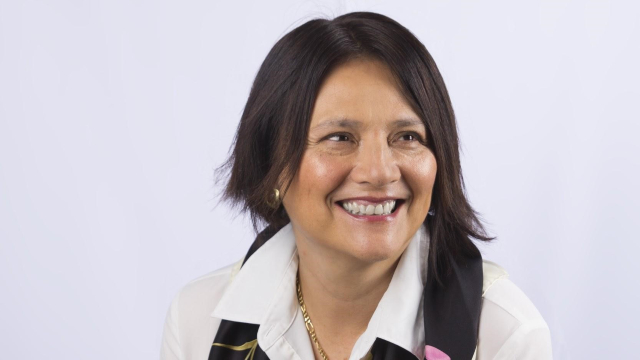50 results found
Featured results

More results
To celebrate International Women’s Day 2022, we interviewed three female leaders at the GI Hub to explore how we can collectively #BreakTheBias and address inequality in infrastructure. The third Q&A in this series is with Monica Bennett, GI Hub’s Director of Thought Leadership.
To celebrate International Women’s Day 2022, we interviewed three female leaders at the GI Hub to explore how we can collectively #BreakTheBias and address inequality in infrastructure. The second Q&A in this series is with Cinthya Pastor, GI Hub’s Director of Economics.
To celebrate International Women’s Day 2022, we interviewed three female leaders at the GI Hub to explore how we can collectively #BreakTheBias and address inequality in infrastructure. The first Q&A in this series is with Maud de Vautibault, GI Hub’s Director of Practical Tools and Knowledge.
Today, the GI Hub has launched a new resource that shows how G20 governments are spending the USD3.2 trillion in infrastructure as a stimulus.
The Reference tool is meant to serve as a practical tool to help governments and other stakeholders understand and implement the critical success factors that deliver inclusive infrastructure. The Framework for Inclusive Infrastructure summarises the following six Actions Areas and related practices that ought to be considered for the systematic implementation of inclusivity in infrastructure at the policy and project levels.
What role should an Infrastructure Commission play in Northern Ireland? Could it help build a pathway to net zero? And what signal would it give to the private sector? GI Hub speaks to Kirsty McManus and Richard Johnson of Northern Ireland's Ministerial Advisory Panel on Infrastructure for answers on these questions and more.
Meet three women leaders who are transforming infrastructure development in Latin America.
The Global Infrastructure Hub (GI Hub) strives to be an organisation where the different backgrounds and perspectives of our people contribute to diversity of thought and approach, enabling us to better live our values and achieve our mission. This diversity includes gender diversity with an awareness of our particular ability to bring attention to the need for gender equality and inclusion in infrastructure.
A recent webinar co-hosted by Jacobs and the Global Infrastructure Hub focused on turning inclusivity frameworks into practical results in infrastructure planning and delivery.
A recent webinar co-hosted by Jacobs and the Global Infrastructure Hub focused on turning inclusivity frameworks into practical results in infrastructure planning and delivery.
The Program "More Light for the Amazon" aims to promote social and economic development of communities located in remote regions of the Legal Amazon, encouraging activities that increase family income and the sustainable use of the natural resources of the Amazon Forest, the integration of actions from the various spheres of the government, and the consequent promotion of citizenship and the dignity of that population.
Africa’s unmet infrastructure need is estimated at nearly $3 trillion by 2040, a new training program aims to drive investment to help close Africa’s infrastructure gap.

Investment in public transit infrastructure can contribute to creating more inclusive societies. Public transit services are more often used by lower-income households, women and ethnic minorities.


Meet four women leaders who are transforming infrastructure development in Latin America.
Meet four women leaders who are transforming infrastructure development in Latin America (Spanish translation).
Meet four women leaders who are transforming infrastructure development in Latin America (Portugese translation).
Global Infrastructure Hub (GI Hub) was a lead contributor at the recent United Nations’ (UN) workshop tackling access to infrastructure for excluded groups including women, differently-abled, and the economically disadvantaged.

The OECD Recommendation on Public Procurement is the overarching OECD guiding principle on public procurement that promotes the strategic and holistic use of public procurement.


The checklist aims at providing a framework to ensure the mainstreaming of gender in the infrastructure sector throughout the project cycle.




 Inclusive Infrastructure and Social Equity Tool
Inclusive Infrastructure and Social Equity Tool












